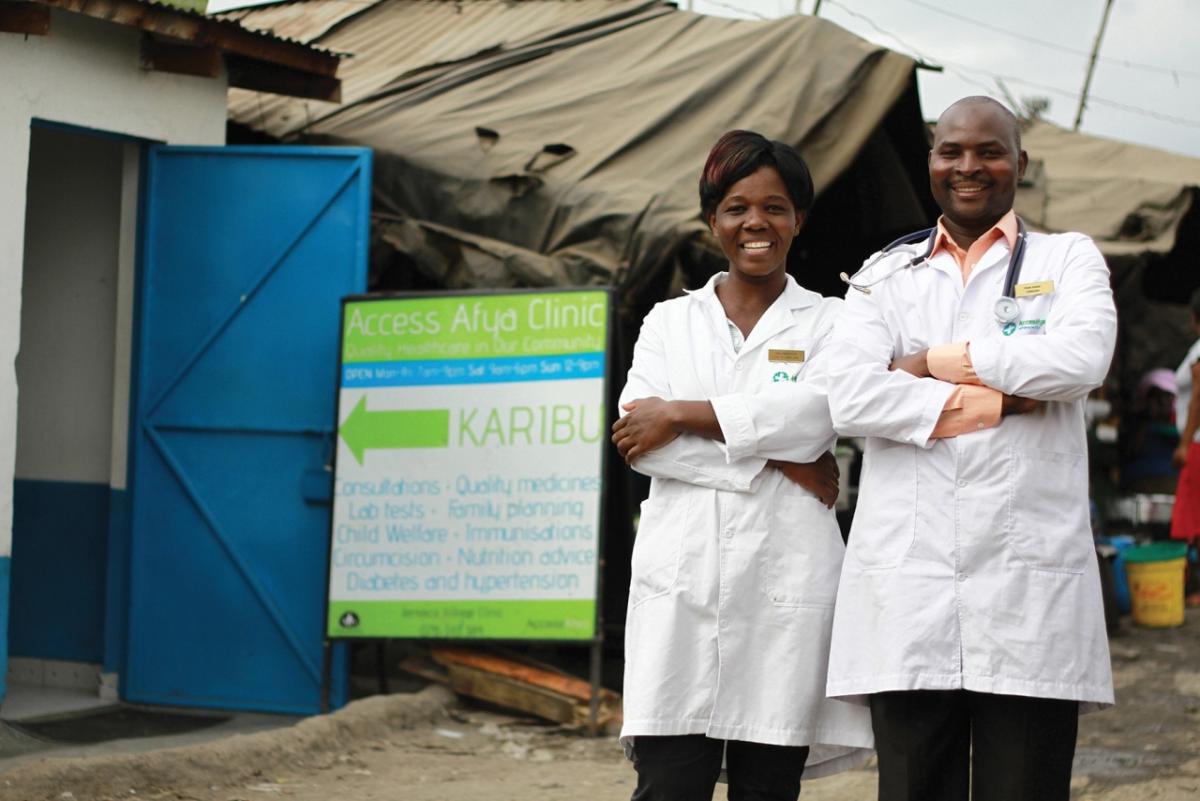To Create a Functional Healthcare System in Kenya, We Don’t Need Tech Disruption
Kenya’s fragmented healthcare system needs to be made more functional and future-looking
Originally published on the Guardian Labs Business Call to Action microsite
By Melissa Menke, Access Afya CEO
In the US, we hear a lot about how technology is disrupting inefficient, entrenched systems. Usually, this conjures up images of mature, large businesses being taken by surprise by new, agile startups.
In countries such as Kenya, where I work, the conversation needs to be more about creation than disruption. Let’s take primary healthcare as an example. Primary care is essential to a happy and prosperous society. It is the foundation of a health system, a first access point for response, information and, ideally, prevention.
But primary health in Kenya is fragmented and is not reaching the entire population. Thirteen per cent of Kenyans do not seek care because of cost (pdf). One-third of people who do seek care go straight to unregulated chemists to buy medication (Access Afya data). Stock-outs are rampant in public- and private-sector facilities. Transportation infrastructure is limited and data coverage does not reach all parts of the country consistently. In Kenya, we do not need to disrupt the status quo – we need to create a functioning and future-looking health system.
At Access Afya, we have found that a combination of technology, operational excellence and investing in our staff gets us closer to this system. We are excited about linking together different technologies, generating data and creating insights to improve quality and support scale.
One example of this is how we run our “Akiba ya Roho” programme (Swahili for “Save your Heart”). Non-communicable diseases (NCDs) account for 27% of deaths in Kenya, for those aged 30-70, and these deaths are largely preventable. NCDs are 31% more likely than infectious diseases to impoverish a family because of their chronic nature.
Our model starts with mass screening in Nairobi’s informal settlements. To make this low-cost and convenient, we built a screening tool on CommCare’s platform that prompts community health workers to ask questions that evaluate risk factors – such as “do you smoke?” – or about family history of NCDs, and to take measurements such as blood pressure and sugar levels. The application displays a risk score at the end, so that a health worker knows whether a patient needs referral to a clinic.
At our chain of low-cost clinics, patients who are referred are greeted by Access Afya staff, who run further investigations and, if a diagnosis is confirmed, work with the patient on a treatment plan. Kenyan clinical officers run our clinics, and they are able to deliver world-class care partially through the support of a clinical decision support tool, which is like a digital guide, prompting the right questions to ask or investigations to order; through telemedicine, which connects patients with remote specialists when needed; and through the Access Afya Academy, which ensures our providers are up-to-date with the latest health information they need to do their jobs.
In between follow-up visits and medication refills, we are in touch with our patients via SMS texts for behaviour coaching and reminders.
The technology solutions deployed in our model work because of the operating engine behind them. When our clinicians write a prescription, patients fill it on site at our clinics. We don’t run out of drugs because we have a team that uses software, quality checklists and market insight to make sure we have the medicines that our community needs at a price that they can afford.Another example of operational excellence is training. New clinical team members have quality interactions with trainers and patients at our best-performing clinics before ever going to run their own sites. They practise using our systems and they practise our approach to patient care. In between in-person training, they can engage in online learning through the Access Afya Academy or other online resources.
We believe in the possibility of digital creation in Kenya and across the developing world. Innovators and implementers must put patients at the centre of a new approach to delivering care, one that learns from expensive or convoluted tactics deployed in other markets. Teams need to be agile and infrastructure adaptable as we design for the needs of today and the trends of tomorrow. Access Afya is working to exemplify an empathetic, innovative and adaptive primary health ecosystem and we are ready to partner with anyone who shares our values.


